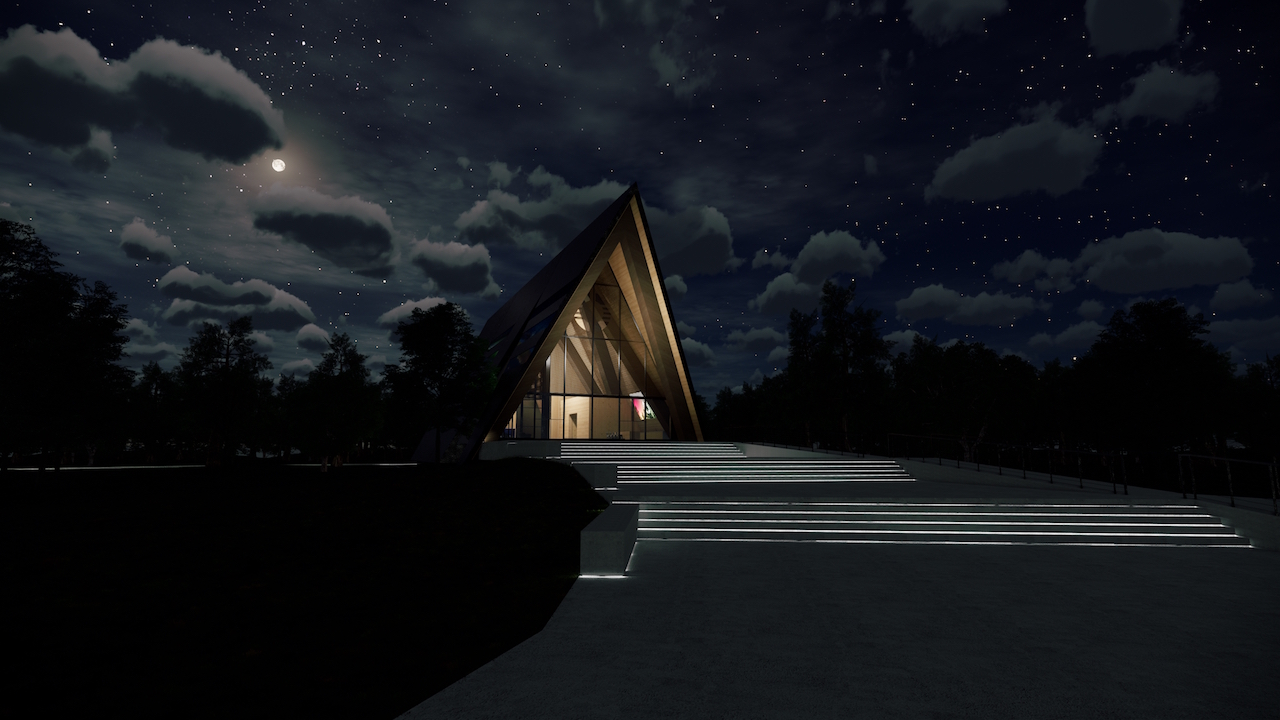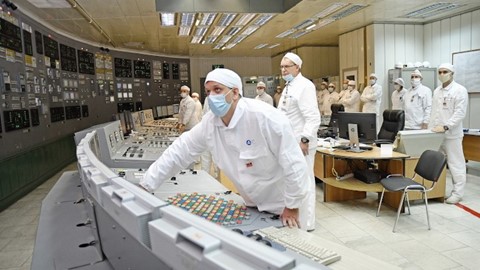Pro-nuclear groups rallied to keep Diablo Canyon open beyond 2025 in front of the San Luis-Obispo County Courthouse in California on December 4, 2021. (Photo: Save Clean Energy)
Over the past couple of months, the nuclear community has participated in a grassroots effort to save the Diablo Canyon nuclear power plant from premature closure—and it appears to be having an effect. The growing support for keeping Diablo Canyon open is seen in editorials, an academic study from Stanford/MIT, and a grassroots rally held in December 2021 to show support for keeping Diablo Canyon operating.
The Temelin nuclear power plant in Czech Republic.
In a wide-ranging “program statement” laying out its policy priorities, the Czech Republic’s new, center-right government has endorsed nuclear energy and renewables and called for power generation from coal to be phased out by 2033.
The final version of the statement was released on January 7 by the five-party coalition government, sworn into office last month and led by Prime Minister Petr Fiala, head of the Civic Democratic Party.
An artist's rendition of Oklo’s Aurora powerhouse. (Image: Gensler)
The Nuclear Regulatory Commission has denied “without prejudice” Oklo Power’s application to build and operate its Aurora microreactor in Idaho, the agency announced yesterday. The denial, according to the NRC, is due to the California-based firm’s failure to provide sufficient information on several crucial topics regarding the Aurora design.
Still image from the session. From left to right are Judi Greenwald, Harlan Bowers, Simon Irish, Mike Laufer, and Jake DeWitte.
The 2021 ANS Winter Meeting included an executive session on advanced reactor licensing, featuring the leaders of four of the top advanced reactor companies: Mike Laufer, chief executive officer of Kairos Power; Jake DeWitte, CEO of Oklo; Simon Irish, CEO of Terrestrial Energy; and Harlan Bowers, president of X-energy.
E.ON subsidiary Preussen Elektra’s Grohnde nuclear plant, located near the town of Hameln in Lower Saxony, on the banks of the Weser River. (Wikimedia/Heinz-Josef Lücking)
October 8, 2021, 3:31PMUpdated December 31, 2021, 4:16PMNuclear NewsJoseph Campbell; Photos by Joseph Campbell and Peter Ritchie, INL The first of three phases of the Advanced Test Reactor’s sixth core overhaul culminated with the removal of the 31-ton stainless steel vessel top head on July 1, for the first time since 2004. The vessel and top head underwent extensive inspection, laser scanning, and upgrade as part of the overhaul. (Photo: JC)
As 2021 closes, Nuclear News is taking a look back at some of the feature articles published each month in the magazine. The October issue focused on plant maintenance and outage management with multiple articles looking at efficient ways to deal with plant maintenance. The article below looks at the herculean effort by INL to lead a full overhaul of the Advanced Test Reactor--a task that happens about every 10 years.
Out of the frenzy of nuclear technology and engineering development at the height of the Atomic Age, a few designs stand out above the rest—designs so innovative that they would not be surpassed for years, or even decades. An example of this unsurpassed design brilliance exists in the form of Idaho National Laboratory’s Advanced Test Reactor.
“ATR is really a beautiful machine,” said Sean O’Kelly, associate lab director for the ATR Complex. “The elegant cloverleaf core and control systems were a stroke of genius that solved just about every key problem of test reactor design. The designers’ solutions to those problems give us a testing capacity and flexibility that have yet to be matched.”
The Tihange nuclear power plant in Belgium. (Photo: Electrabel)
Belgium’s seven-party coalition government this morning announced via press conference a tentative agreement to close the nation’s two nuclear power plants by 2025, confirming a commitment made in October of last year when it took office. Plant closures are scheduled to begin in 2022.
Reactor operators in the control room at Kursk I-1, as the unit is powered down for good. (Photo: Rosenergoatom)
After 45 years of producing electricity, the first unit at Russia’s Kursk nuclear power plant has been retired, plant operator Rosenergoatom announced on Monday. Kursk I-1, one of the facility’s four 925-MWe light water–cooled graphite-moderated reactors, model RBMK-1000 (a Chernobyl-type reactor), was permanently shut down at 00:24 Moscow time on December 19.

















